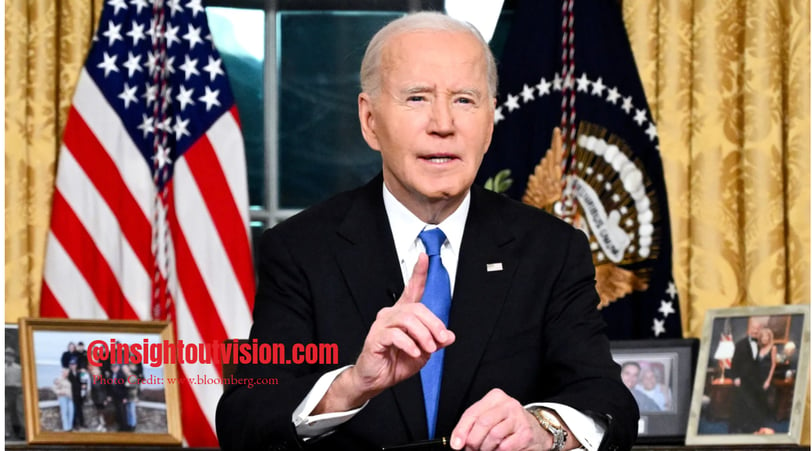Decoding the Autopen Scandal: A Media Literacy Guide to Trump's Election Claims
5/16/20253 min read


Decoding the Autopen Scandal: A Media Literacy Guide to Trump's Election Claims
In the digital age, where information flows faster than ever, navigating the murky waters of political discourse requires a keen eye and a critical mind. Former President Donald Trump's recent statement on May 17, 2025, alleging that the use of an "autopen" for signing pardons was part of a larger scandal tied to the 2020 election, exemplifies the challenges of media literacy. This post, shared on X (formerly Twitter), has reignited debates about election integrity, the role of social media, and the importance of discerning fact from fiction. Let's explore how media literacy tools can help us unpack these claims and understand their broader implications.
The Autopen Controversy Unpacked
Trump's claim centers on the "autopen scandal," suggesting that the mechanical signing of pardons by the Biden administration invalidates them and is indicative of electoral misconduct. However, a deeper dive into the facts reveals a different story. Legal experts agree that the use of autopens for official documents, including pardons, is constitutionally valid. Presidents from Thomas Jefferson to Barack Obama have employed similar devices without issue, and the Constitution does not require a president's handwritten signature for such actions.
The post on X, attributed to@DeepFakeQuote, leverages this narrative to amplify Trump's ongoing assertion that the 2020 election was "rigged and stolen." This claim, despite being debunked by numerous court cases and investigations, persists in certain circles, highlighting the power of repetition in shaping public perception.
Media Literacy Tools at Work
To critically assess such claims, media literacy tools are indispensable. Here are a few key strategies:
Fact-Checking: Utilize reputable fact-checking organizations like PolitiFact or Snopes to verify the accuracy of statements. For instance, they have consistently found no evidence of widespread fraud in the 2020 election.
Source Evaluation: Consider the credibility of the source. The
@DeepFakeQuote
account, with its focus on deepfake technology, raises questions about the authenticity of the content. Is the information coming from a verified, reliable source, or is it designed to mislead?
Contextual Analysis: Understand the broader context. Trump's statement is part of a larger narrative of election denial that has been a staple of his rhetoric since 2020. Recognizing this pattern can help discern motive and intent.
Cross-Referencing: Compare multiple sources to get a comprehensive view. News outlets, legal analyses, and historical precedents all provide valuable perspectives on the autopen issue and election integrity.
The Role of Social Media
Social media platforms like X amplify political discourse, for better or worse. Trump's post, with its thread of responses, illustrates how these platforms can both inform and misinform. The rapid spread of information can lead to echo chambers, where users are exposed primarily to viewpoints that reinforce their existing beliefs. This phenomenon is particularly evident in the context of election integrity, where misinformation can erode public trust.
Media literacy tools help us navigate this landscape by encouraging critical engagement. For example, recognizing the potential for deepfake technology to manipulate content is crucial. The@DeepFakeQuote account's name itself is a reminder to question the authenticity of what we see and hear online.
Historical and Legal Context
Understanding the historical and legal context is vital for media literacy. The autopen's use in presidential pardons is not novel; it has been a practice for decades. Legal scholars have affirmed its constitutionality, countering Trump's claims. Similarly, the 2020 election's integrity has been upheld by extensive reviews, including those by state officials and federal agencies.
This context is often missing from social media posts, which tend to focus on sensationalism rather than substance. Media literacy encourages us to seek out this background information to form a more nuanced understanding.
Implications for Democracy
The persistence of election integrity claims, despite lack of evidence, has significant implications for democracy. It undermines trust in electoral processes and can influence future voter behavior. As we approach the 2026 midterms, the narrative around 2020 will likely resurface, making media literacy more important than ever.
Moreover, the role of social media in spreading misinformation highlights the need for platforms to enhance their fact-checking and content moderation policies. Users, too, must take responsibility for critically evaluating the information they consume and share.
Engaging the Reader
As we dissect Trump's latest claims, it's clear that media literacy is not just a tool but a necessity. It empowers us to question, analyze, and understand the information that shapes our world. Whether it's the autopen scandal or broader election integrity issues, the ability to discern fact from fiction is crucial for informed citizenship.
Thought Questions
How can we better integrate media literacy education into our daily lives to combat misinformation?
What responsibilities do social media platforms have in ensuring the accuracy of political content?
How might the persistence of election integrity claims impact future electoral processes and public trust in democracy?
In conclusion, the autopen scandal serves as a case study in the importance of media literacy. By employing critical thinking and leveraging available tools, we can navigate the complexities of political discourse and contribute to a more informed public dialogue. The challenge is ongoing, but with the right approach, we can rise to meet it.
Explore deep insights on current events and growth.
Vision
Truth
hello@insightoutvision.com
+1-2236036419
© 2025. All rights reserved.
